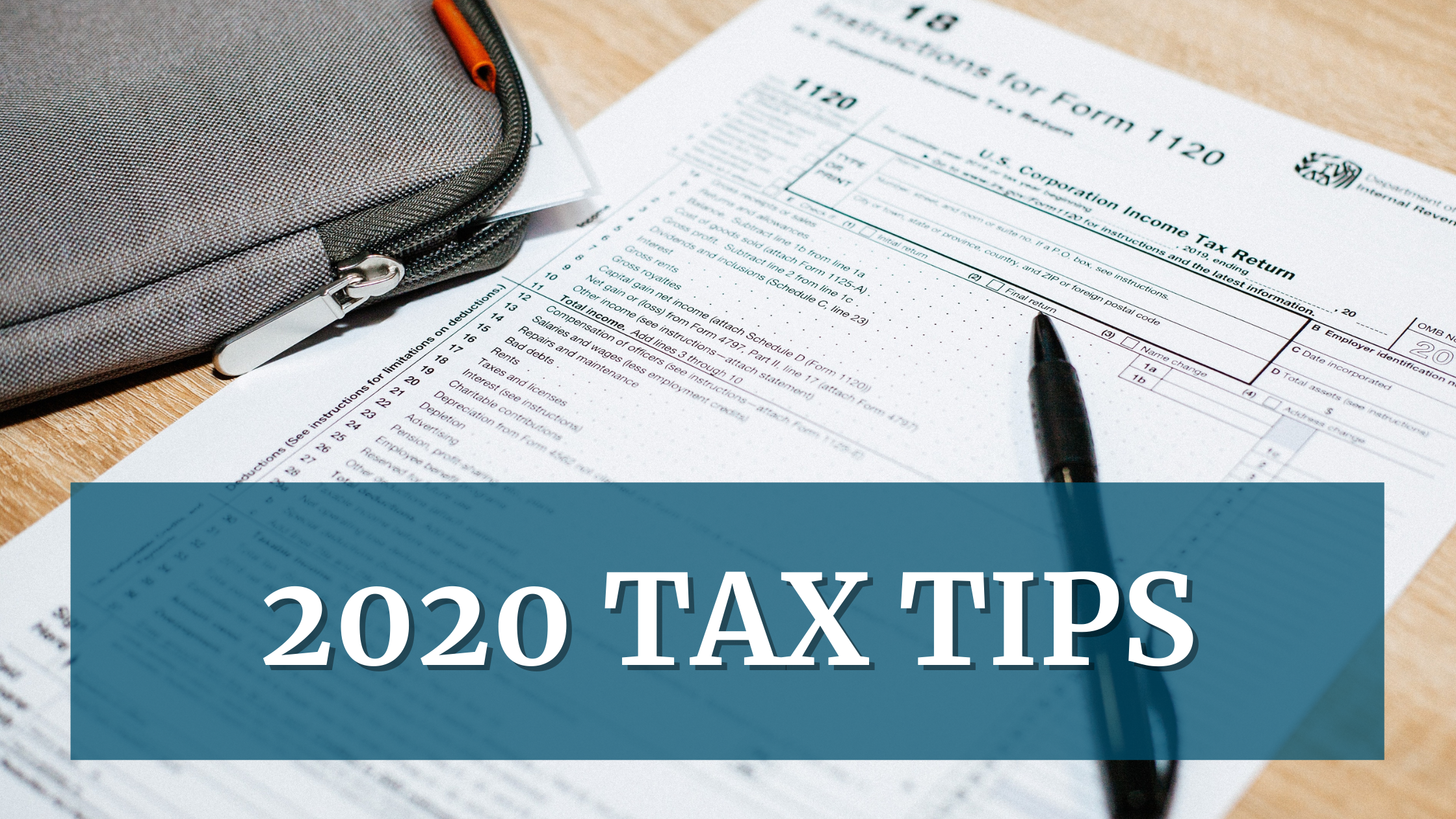2020 Tax Tips: Unemployment, Furloughs, Stimulus Payments – How They Impact Your Tax Filings.

2020 was a chaotic year. The Covid19 pandemic took us on a wild ride. While we were all impacted in different ways, as we head into tax season you may have questions about how your personal experiences will impact your 2020 tax filings and potential refunds.
From job loss, furloughs, to stimulus payments, what is the impact on your tax filings? Here are some insights provided with the help of our partners at TurboTax®.
Tax Tips for Unemployment Income
If you lost your job or were furloughed this year, you likely applied for unemployment benefits, once you could get through on the busy, busy phone lines. And now, with tax time approaching, you may wonder if you owe taxes on the money you received, and if so, when and how you need to pay the tax.
Is my furlough pay or severance taxable?
Unfortunately, yes, any furlough pay and severance benefits from your employer is taxable, and your employer probably withheld taxes from that pay. The income and withholding will be included in the W-2 you receive in January. You’ll report the W-2 information on your tax return for 2020 and pay any taxes still due or, fingers crossed, claim a refund for overpayment.
I got laid off, do I have to pay tax on my unemployment?
If you received unemployment benefits you will owe federal income tax on those benefits, and you’ll receive a Form 1099G reporting that income to you. You may owe state income taxes as well, unless you live in one of the six states that don’t tax unemployment benefits (California, Montana, New Jersey, Oregon, Pennsylvania and Virginia), or one of the seven states that don’t have a state income tax.
Withholding taxes are not automatically taken out of unemployment benefits, so unless you opted to have taxes withheld anyway, no taxes were withheld. At this point some you are beginning to get the not-so-lovely picture. Taxable income received; no taxes withheld – uh oh! – taxes owed.
Isn’t the extra $600 federal benefit exempt from tax?
No, afraid not. The State unemployment benefits were boosted by a $600 per week Pandemic Unemployment Assistance supplement through June 2020. That supplement will be included in your taxable income on Form 1099G.
Here’s a small glimmer of hope
Your tax bracket will be low if your income for the year was low, which reduces the taxes you owe. But even if you don’t plan to file and pay until the April 15 filing deadline, consider preparing your tax return soon after the first of the year. That will give you a realistic picture of your tax situation plus a few extra months to find the money to pay the taxes.
The Impact Of Stimulus Payments On Your Taxes
One bright spot for a majority of Americans in 2020 during the Covid19 pandemic was receiving the $1,200 Economic Impact Payment. And if you did, you may be wondering, what’s the catch?
Here are a few common questions and answers related to the stimulus payments.
Do I owe tax on the money I received?
That’s an easy one: No. The stimulus payment was designed to impact the economy, not your taxes, so it won’t reduce your 2020 refund or increase your tax due.
I didn’t get a payment – why?
If your income for 2019 or 2018 was over $75,000 ($150,000 if you filed jointly, $112,500 if you were head of household), then your payment was reduced by $5 for every excess $100 you earned. And if you didn’t file a tax return for either year, you may not have gotten a payment. But don’t despair, you still may be entitled to payment.
Really? What can I do now? If you were supposed to file a 2019 tax return and didn’t, file right away. If your income was too low to file, at IRS.gov you can click on the tab marked “Non-filers” and fill in your basic information. If the IRS determines you are eligible for a payment, they will send it to you.
What if my income has gone down?
If your 2019 income was too high for you to receive a payment, but your income this year is much lower, you are in luck. You can claim your stimulus payment on your 2020 income tax return, and it increase the refund you receive (or reduce any tax due).
My 2020 income is higher than in 2019 – will the government want the money back?
No. If you received a stimulus payment based on lower income in 2019, that payment is yours to keep even if your income increased above the threshold in 2020.
When it’s time to file your taxes TurboTax is here to help!
From simple to complex taxes, TurboTax® has you covered. And when you need help, real experts are standing by — and can even do your taxes for you, start to finish with TurboTax Live®. Getting your biggest possible tax refund has never been easier. And as a credit union member you can save up to $15 on TurboTax. Click here to get started today!
The information in this article for general educational purposes only and not intended to provide specific advice or recommendations. Please discuss your particular circumstances with an appropriate professional before taking action.
